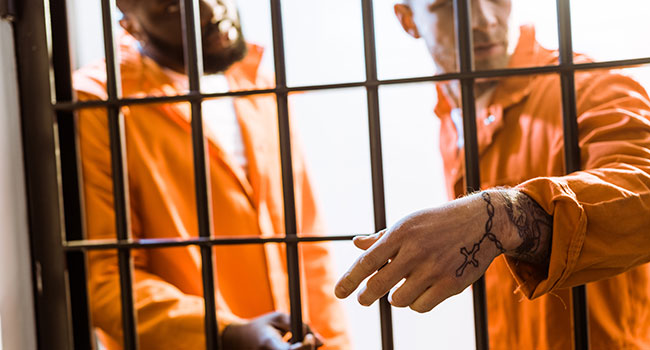
Body Cameras Must be worn by California Prison Guards
Federal judge also orders body camera footage from use-of-force incidents be preserved and that policies be created
A federal judge mandate will make sure that California correctional officers will now be required to use body cameras while interacting with inmates inside a state prison.
A lawsuit over disabled inmates’ right has brought about a ruling in which a federal judge found evidence to support allegations of physical abuse of prisoners at the Richard J. Donovan Correctional Facility in San Diego. The order applies to interactions with all inmates with disabilities inside the Otay Mesa facility.
The judge was asked by attorneys for the inmates with disabilities to issue an order mandating body cameras for correctional officers after documenting widespread physical abuse of the inmates.
"Body cameras have never been used in California prisons. This is a very important order to help put an end to physical abuse and broken bones of those with physical disabilities at this most dangerous of prisons," said attorney Gay Grunfeld, whose law firm, along with the Prison Law Office, represents the plaintiffs. "Body cameras can bring sound and context to situations that involve the use of force which surveillance cameras cannot."
U.S. District Judge Claudia Wilken gave the California Department of Corrections and Rehabilitation a timetable that effectively gives it five months to get the body-worn devices into use. She also ordered that records from body cameras be preserved from use-of-force incidents and that policies be created.
State corrections officials declined to address the findings.
"We are unable to comment on specifics of ongoing litigation, but we take the safety and security of the incarcerated population very seriously, and vigorously work to protect those with disabilities. We will be carefully evaluating the order," Dana Simas, a spokeswoman with the Department of Corrections and Rehabilitation, said in a statement.
Wilken also ordered the installation, within four or five months, of widespread surveillance camera systems at critical areas of the prison and the establishment of third-party expert monitor oversight of evidence gathered at the prison.
Wilken ordered those actions as part of an injunction she granted as part of a bigger plan to address allegations of repeated physical abuse and retaliation against disabled inmates who complain about the prison facility. While police forces across the country, including the Los Angeles Police Department, use body cameras, their use in prisons is relatively rare. This ruling applies to a single prison, but the judge is expected to hear another motion next month that examines evidence of abuses across the state prison system and seeks to implement the use of body cameras across 35 prisons, including Corcoran where there also have been documented abuses.